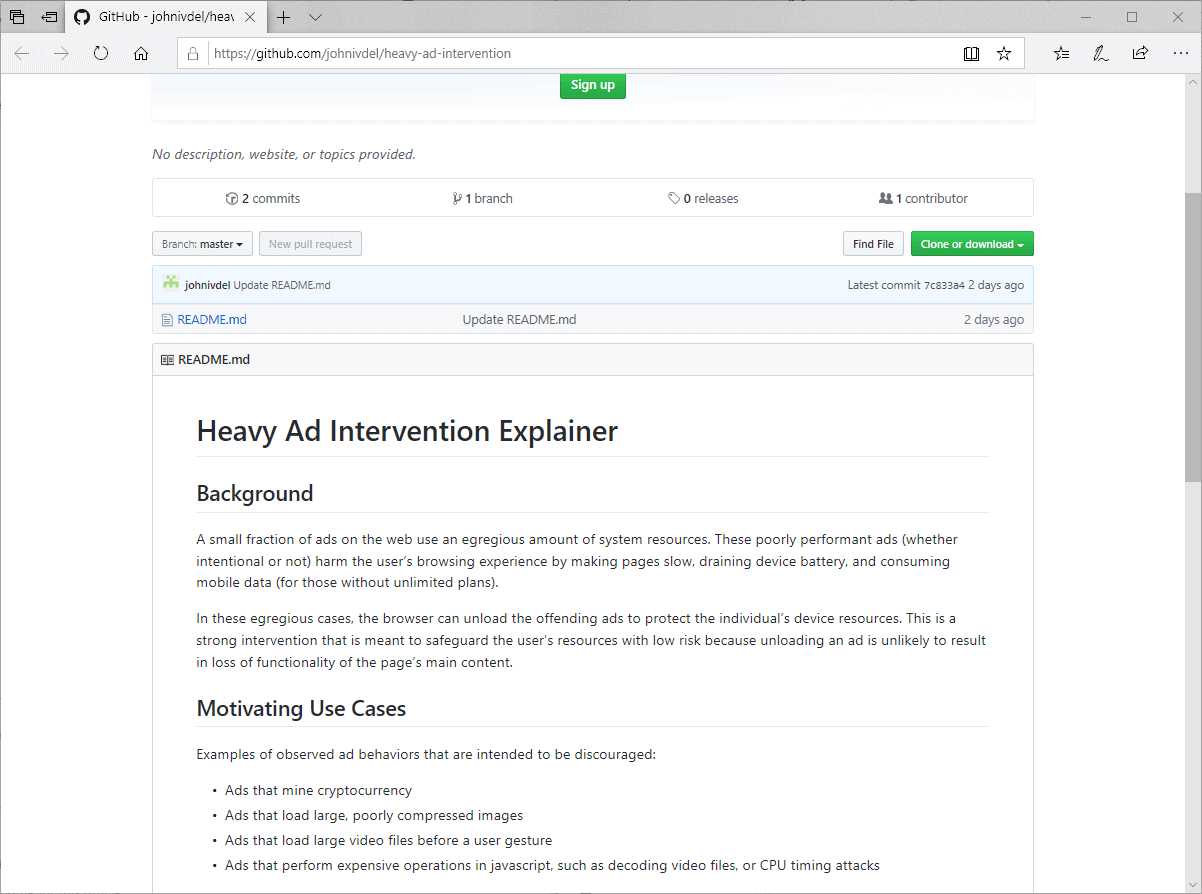by Martin Brinkmann on September 26, 2019 in Google Chrome – 4 comments
Some ads on the Internet use an “an egregious amount of CPU or network bandwidth” and that has to stop, according to Google. The company plans to integrate a new feature in the company’s Chrome web browser that will unload resource heavy ads automatically.
Cryptominers, ads that load uncompressed or poorly compressed image files, use JavaScript to decode video files, make other expensive operations that tax the CPU, and ads that load large video files before user interaction are mentioned explicitly by Google as targets for the ad-blocking extension.
A small fraction of ads on the web use an egregious amount of system resources. These poorly performant ads (whether intentional or not) harm the user’s browsing experience by making pages slow, draining device battery, and consuming mobile data (for those without unlimited plans).
Google implemented an ad-blocker in the Chrome web browser recently that focuses on sites that display ads that violate the Better Ad Standards. The company revealed in 2017 that it would implement ad-blocking functionality in Chrome to block some ads in the browser and that the ad-blocking would begin in 2018.
Some saw this as a step in the right direction, others that it did not go far enough and did not address privacy and security issues associated with advertising.

Ad formats such as pop-up ads, auto-playing video ads or flashing animated ads on mobile devices are classified as problematic by the standard and thus blocked in Chrome when detected.
If Heavy Ad Intervention is implemented in Google Chrome, the browser would unload ads that meet the outlined criteria. Google defines egregious as “using more of a resource than 99.9% of ads as measured by the browser”.
Google proposed certain thresholds and exceptions:
- Only ads that the user has not interacted with are targets for the unloading.
- Ads are considered heavy if
- it used the main thread for more than 60 seconds in total.
- it used the main thread for more than 15 seconds in any 30 second window.
- it used more than 4 Megabytes of network bandwidth to load resources.
Chrome displays information in the Developer Tools console to inform about unloading events. The network and performance panel may provide additional information about the cause of the unloading.
So-called intervention reports are sent to the iframes that are unloaded to provide publishers and advertising companies with information on why a particular ad was unloaded by the browser.
Google projects that the implementation would “save 12.8% of the network usage by ad creatives, and 16.1% of all CPU usage by ad creatives” if implemented.
Closing Words
Google published an intent to block resource heavy ads and the possibility exists that the company won’t implement the feature after all. The likelihood of it being implemented in Chrome is high, however, since it improves the user experience towards advertisement.
Naturally, the feature won’t have any effect on users who run content blockers already as all ads are blocked by these. Google, reliant on advertising, cannot implement full content blocking in its browser as it would have a heavy impact on the company’s revenue.
Other browser makers implemented ad-blocking outright, Opera launched it in Opera 37 in 2016, while Mozilla focused its efforts mostly on tracking.
Now You: What is your take on Google’s efforts to eliminate problematic ads? (via Techdows)